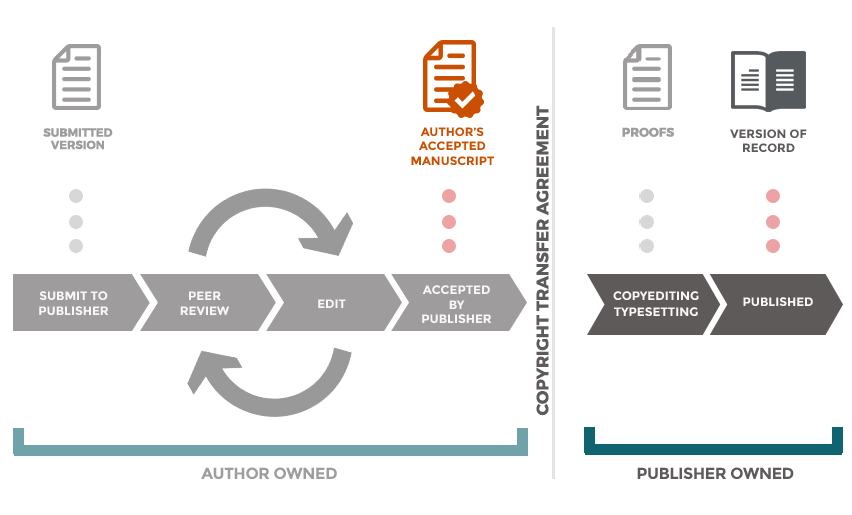As soon as your paper has been accepted for publication, the next steps are:
- Upload your accepted manuscript via Elements and provide the date of acceptance.
- A member of the Open Access Team will review your submission.
- If there are any issues with your submission, you will be contacted by a member of the Open Access Team before the deposit is completed.
- If there are no issues with your submission, your deposit will be finalised and your paper will be made available in the University's institutional repository, Apollo, subject to any embargo periods required by the publisher.
- You will receive an email from the Open Access Team to confirm that the deposit has been made, along with any payment and/or funding advice.
There is more information on how to upload papers via Elements on the Research Information SharePoint.
What is an accepted manuscript?
The accepted manuscript is the final author-created version of the manuscript, which includes any changes made after peer-review and has been accepted for publication by the journal. An accepted manuscript is not a document that has been typeset or copyedited by the publisher (such as proofs or the final published version), but if you wrote your article in a publisher-supplied template then that is acceptable.

What is the date of acceptance?
The date of acceptance is the date that the publisher formally lets you know (e.g. by email) that the manuscript has been accepted for publication. At that time, typically the peer review process will have been completed, with any peer review changes incorporated in the manuscript, and the next stage, publisher typesetting and copy-editing, will be commencing.
Why make a deposit in Apollo at acceptance?
Depositing in Apollo has many benefits, including:
- You’ll get publishing advice from the Open Access Team at the time of signing a publishing agreement.
- Ensures there is a permanent record of your research.
- Makes your research more easily discoverable and accessible by other researchers, policy makers, practitioners and the public.
- Even if things don’t work out as planned with the publisher, a deposit under the University’s Self-Archiving Policy meets most major funders’ requirements, including deposit, embargo and licensing.

